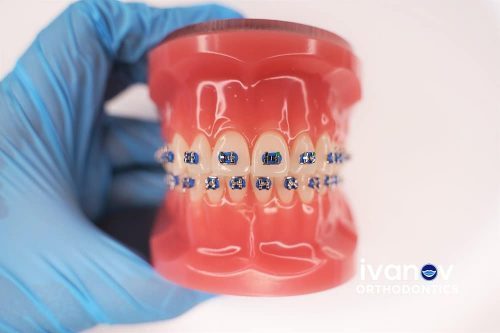Although you use orthodontic therapy to straighten and align teeth for a long time, the effects have never been long-lasting. To make results more long-lasting, orthodontic specialist of Florida tried to develop a retention solution. They initially employed detachable dental equipment made to fit your teeth, and patients could put and take out their retainers as needed to keep their teeth looking good.
Â

Later, orthodontist Hollywood began utilising immovably fixed retainers that remain on your teeth. You don't need to put back permanent retainers in your mouth and keep your teeth from shifting back into their original positions.
Â
What s a permanent retainer?
Â
The single wire of a permanent retainer is made of metal or a sturdy fibre bonded to your teeth with a specific adhesive. This wire maintains the fixed position of your teeth. Usually just affecting your front four to six teeth, permanent retainers are more common on lower teeth. Retainers should be used for maximum outcomes within six months of your orthodontic treatment.
Â
What are the drawbacks of a permanent retainer?
Â
Considerations and probable downsides or drawbacks of permanent retainers are as follows:
Â
- North Miami Beach orthodontist may need to attach a permanent retainer through a challenging process. Bonding a permanent retainer to your teeth might occasionally take up to an hour. For an orthodontist to create a detachable retainer that fits your mouth, you must take a short imprint on your mouth.
Â
- Cleaning and flossing around a permanent retainer require more effort. You neglect to properly clean the region around your permanent retainer, and your risk of cavities and gum disease could increase in those situations.
Â
- It can feel uncomfortable to have a metal device in your mouth constantly. The wire may chafe on your tongue. If the bond or the wire breaks, your tongue can also become irritated or scraped.
Â
- Some meals may alter their effectiveness. For example, biting a whole apple or a tough steak might make the wire out of shape. Foods like soda that are heavy in artificial sweeteners or other additives might wear down the bonding substance, potentially weakening the binding of the retainer to the teeth.
Â
- The wire can debond or break off, necessitating repair or replacement. You might also need to pay a replacement charge to create a new one.
 Â
Â
What to do if my retainer breaks?
Â
Don't try to fix a broken or bent retainer by yourself. Applying too much pressure on the retainer may also cause the bonding material or wire to snap, harming your teeth. The retainer won't hold your teeth in regular locations if you alter its form. If your retainer is shifting:
Â
- Schedule a visit with your dental specialist or orthodontist near me to get the retainer adjusted or repaired if it isn't troubling you or hurting any other areas of your mouth.
Â
- Make a quick phone call to your dental specialist. Also, consult your dentist or orthodontist if a piece of your retainer has broken off or hurt another area of your mouth to prevent further harm to your teeth, mouth, or retainer.
Â
Conclusion
Â
We hope the above-provided information will give you valuable insight into permanent retainers. The above article highlights some beneficial facts regarding permanent retainer. For more informative details, please visit ivanovortho.com.
Article Source : https://www.articleaffiliate.com/what-do-you-understand-about-dental-retainers/